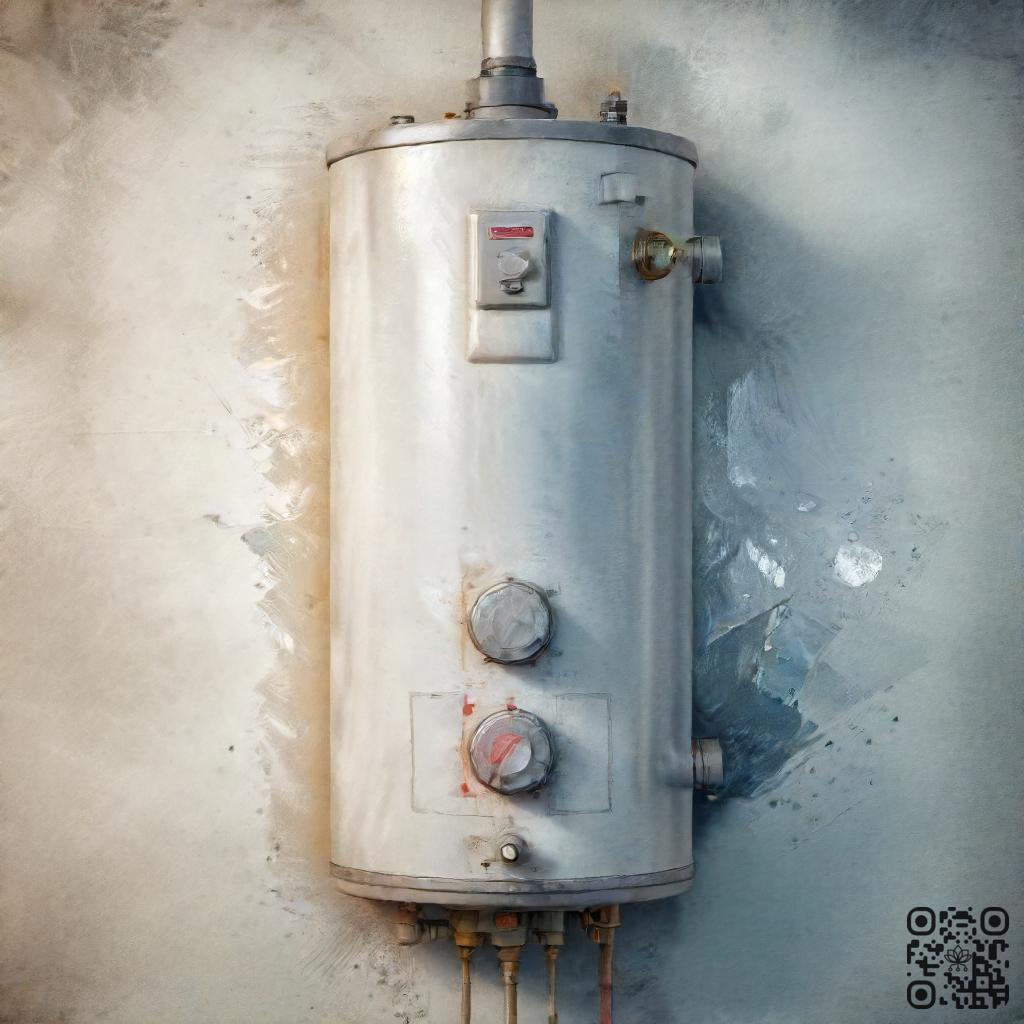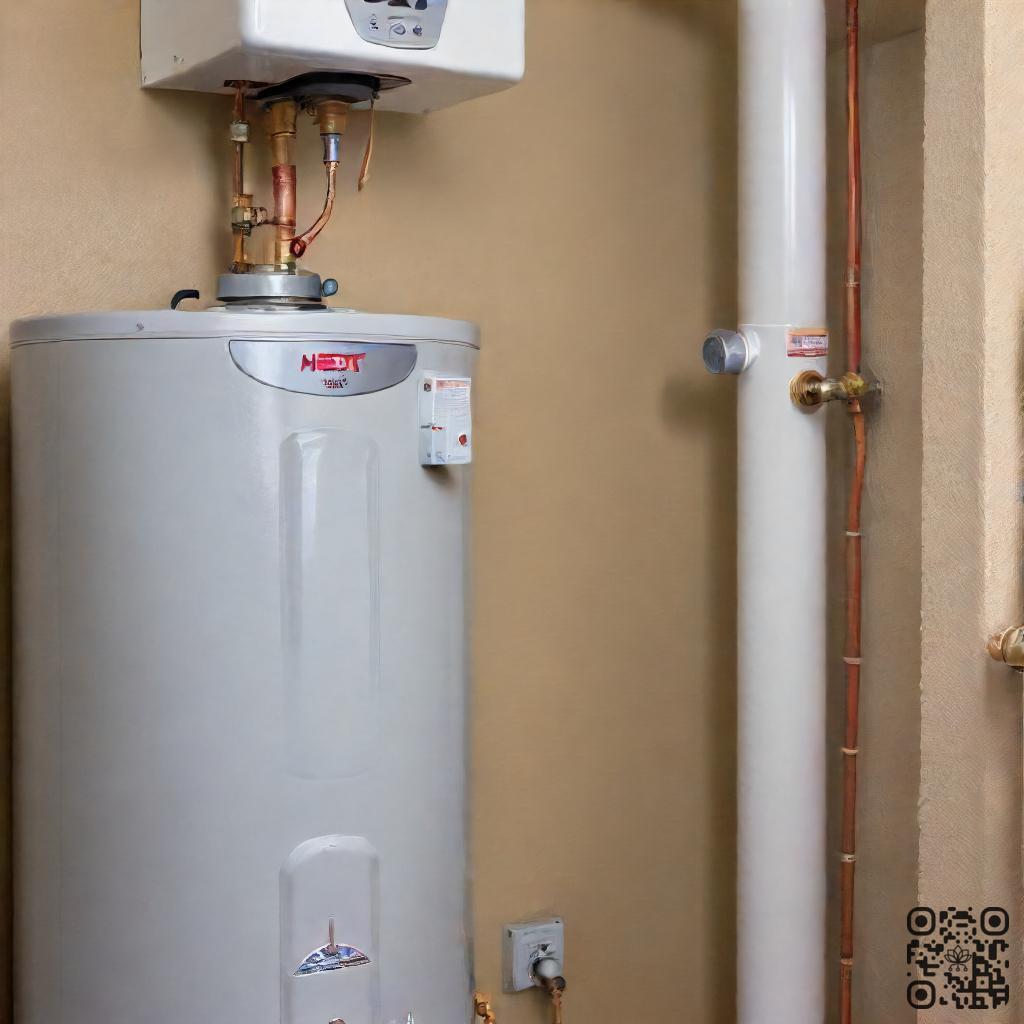
II. New advancements in technology have made it easier to detect leaks and prevent water damage.
III. Homeowners should educate themselves on the different types of leak detection systems available and choose the one that best fits their needs and budget.
Introducing our latest innovation in water heater leak detection technology. With our advanced system, you can prevent costly water damage and potential hazards caused by leaks in your water heater.
Our technology provides real-time monitoring and alerts, ensuring you have peace of mind knowing that your water heater is functioning properly. Say goodbye to unexpected leaks and hello to a reliable and efficient water heating system.
Experience the benefits of our cutting-edge leak detection technology today.
Traditional Water Heater Leak Detection Methods
Water heater leaks can cause significant damage to your home and lead to costly repairs. It is crucial to detect leaks early to prevent further damage. This section will discuss three traditional water heater leak detection methods that can help you identify leaks and take appropriate action.
1. Visual Inspection
Visual inspection is a simple yet effective method to detect water heater leaks. Start by examining the area around the water heater for any signs of moisture or puddles. Look for water stains on the floor or walls near the water heater. If you notice any wet spots or discoloration, it could indicate a leak.
Inspect the water heater itself for any visible signs of leakage. Check the connections, valves, and pipes for any drips or water accumulation. Pay close attention to the bottom of the water heater, as leaks often occur from the tank or its fittings.
If you spot any signs of a leak during the visual inspection, it is essential to address the issue promptly. Contact a professional plumber to assess the situation and perform the necessary repairs.
2. Pressure Relief Valves
Pressure relief valves are an integral part of water heaters, designed to release excess pressure and prevent tank ruptures. These valves can also serve as an indicator of leaks. Check the pressure relief valve for any signs of water dripping or a constant flow of water.
To test the pressure relief valve, place a bucket underneath it and lift the lever to release some water. If water continues to flow after releasing the lever, it could indicate a faulty valve or a leak within the water heater.
If you suspect a leak in the pressure relief valve, it is advisable to consult a professional plumber to inspect and replace the valve if necessary.
3. Drain Pans
Installing a drain pan beneath your water heater can help detect leaks and prevent water damage. Drain pans are designed to collect water in case of a leak and direct it to a drain or an external location.
Regularly inspect the drain pan for any signs of water accumulation or moisture. If you notice water in the drain pan, it could indicate a leak in the water heater. It is crucial to address the issue promptly to avoid further damage.
When installing a drain pan, ensure that it is properly connected to a drain or has an external outlet for water disposal.
| Leak Detection Method | Pros | Cons |
|---|---|---|
| Visual Inspection | Easy and quick | May not detect hidden leaks |
| Pressure Relief Valves | Indicates pressure-related leaks | Does not detect other types of leaks |
| Drain Pans | Collects water to prevent damage | Requires regular inspection and maintenance |
New Water Heater Leak Detection Technology
In the realm of ensuring the safety and efficiency of your home’s water heater, it’s essential to stay ahead of potential leaks. With the advancement of technology, new and innovative solutions have emerged to detect and prevent water heater leaks. In this section, we will navigate the latest water heater leak detection technologies that can provide peace of mind and save you from costly damages.
1. Water Sensors
Water sensors are a simple yet effective way to detect leaks and prevent water damage. These small devices are placed near the water heater and can quickly identify any water accumulation. Once water is detected, the sensor will trigger an alarm, alerting you to the potential leak. Some advanced models even have Wi-Fi capabilities, allowing you to receive instant notifications on your smartphone or tablet, no matter where you are.
2. Wi-Fi Enabled Leak Detectors
Wi-Fi enabled leak detectors take water sensor technology to the next level. These smart devices not only detect leaks but also provide real-time monitoring and data analysis. Equipped with built-in Wi-Fi capabilities, these detectors connect to your home network, allowing you to receive alerts and access information through a dedicated mobile app. With this technology, you can track water usage, monitor temperature changes, and receive proactive maintenance reminders.
3. Automatic Shut-Off Valves
Automatic shut-off valves are an excellent addition to any water heater system. These valves are designed to automatically cut off the water supply when a leak is detected, preventing further damage and water wastage. Connected to your home’s plumbing system, these valves can be programmed to shut off the water flow instantly or after a specific duration of time. Some models even have the capability to be controlled remotely, giving you complete control over your water heater’s safety.
Advantages of New Water Heater Leak Detection Technology
Leaks in water heaters can lead to significant water damage and expensive repairs. That being said, with the advent of new leak detection technology, homeowners now have access to advanced solutions that offer several advantages.
1. Early Detection of Leaks
One of the key benefits of this new technology is its ability to detect leaks at an early stage. By constantly monitoring the water heater, it can quickly identify any signs of leakage, such as drops in water pressure or abnormal temperature fluctuations. This early detection allows homeowners to take immediate action and prevent further damage.
2. Reduced Risk of Water Damage
Water damage caused by leaking water heaters can be devastating. It can lead to structural damage, mold growth, and costly repairs. With the new leak detection technology, homeowners can significantly reduce the risk of water damage. By promptly addressing leaks, they can prevent water from spreading and causing extensive destruction.
3. Cost-Effective Solutions
Repairing water damage can be expensive, not to mention the cost of replacing a faulty water heater. The new leak detection technology offers cost-effective solutions by preventing leaks from escalating into major issues. By acknowledging leaks early on, homeowners can avoid costly repairs and replacements, saving both time and money.

Installation and Maintenance of Water Heater Leak Detection Technology
1. DIY Installation vs Professional Installation
Relating to installing water heater leak detection technology, you have the option of doing it yourself or hiring a professional. Both approaches have their pros and cons.
DIY Installation:
- Cost-effective solution
- Allows for customization
- Requires basic plumbing knowledge
Professional Installation:
- Ensures proper installation
- Provides warranty and support
- Requires professional expertise
2. Maintenance of Water Sensors and Leak Detectors
Regular maintenance is crucial to ensure the effectiveness of water sensors and leak detectors. Here are some maintenance tips:
- Inspect sensors for any physical damage
- Clean sensors to remove dirt or debris
- Test sensors regularly to ensure functionality
- Replace batteries as needed
3. Replacing Automatic Shut-Off Valves
Automatic shut-off valves are an important component of water heater leak detection technology. Over time, these valves may wear out or become faulty. Here’s what you need to know about replacing them:
- Identify the type of shut-off valve you have
- Turn off the water supply to the heater
- Remove the old valve carefully
- Install the new valve following manufacturer instructions
- Test the new valve to ensure proper functioning
Regularly inspecting and replacing automatic shut-off valves will help prevent water damage and ensure the effectiveness of your leak detection system.
Table: Comparison of Water Heater Leak Detection Technologies
| Technology | Pros | Cons |
|---|---|---|
| Water Sensors | Cost-effective | May require frequent battery replacements |
| Leak Detectors | Immediate detection of leaks | Higher upfront cost |
| Automatic Shut-off Valves | Quick response to leaks | Requires professional installation |

Choosing the Right Water Heater Leak Detection Technology for Your Home
Water heater leaks can be a costly and damaging problem for homeowners. It is essential to choose the right leak detection technology to protect your home and prevent any potential damage. Here, we will discuss the factors to consider when selecting a water heater leak detection system, budget considerations, and compare different products to help you make an informed decision.
Factors to Consider
When choosing a water heater leak detection technology, there are several factors to consider:
- Accuracy: Look for a system that provides accurate and reliable leak detection to minimize false alarms and ensure early detection of leaks.
- Sensitivity: The system should be sensitive enough to detect even small leaks, allowing you to take prompt action before any significant damage occurs.
- Installation: Consider the ease of installation and compatibility with your existing water heater system. Look for systems that can be easily integrated without the need for extensive modifications.
- Alert Mechanism: Determine how the system notifies you of a leak. Look for options like smartphone notifications, audible alarms, or email alerts for convenient and timely notifications.
Budget Considerations
Meanwhile it is essential to choose a reliable water heater leak detection system, budget considerations play a significant role in the decision-making process. Consider the following:
- Cost: Compare the prices of different leak detection systems and choose one that fits within your budget.
- Additional Expenses: Take into account any additional expenses, such as installation or maintenance costs, when evaluating the overall cost of the system.
Comparison of Different Products
To help you make an informed decision, here is a comparison of different water heater leak detection products:
| Product | Accuracy | Sensitivity | Installation | Alert Mechanism | Price |
|---|---|---|---|---|---|
| Product A | High | Excellent | Easy | Smartphone notifications | $X |
| Product B | Medium | Good | Moderate | Audible alarms | $Y |
| Product C | Low | Fair | Complex | Email alerts | $Z |
Bottom Line
Water heater leak detection technology is an essential tool for homeowners to prevent water damage and save money on repairs. With the advancement of technology, there are now various options available for detecting leaks, including sensors, alarms, and smart devices. These tools can alert homeowners to potential leaks before they become a major problem, allowing them to take action and avoid costly repairs. Fundamental to choose the right technology for your needs and to regularly maintain and test your system to ensure it is working properly. By investing in water heater leak detection technology, homeowners can have peace of mind knowing their home is protected from water damage.
Overall, water heater leak detection technology is a smart investment for any homeowner. It can save you money, prevent water damage, and provide peace of mind. With so many options available, indispensable to do your research and choose the right technology for your needs. By taking proactive measures to prevent leaks, you can avoid costly repairs and protect your home for years to come.
Read More:
1. Water Heater Leak Maintenance Checklist
2. Leaks In Solar-Powered Water Heaters
















